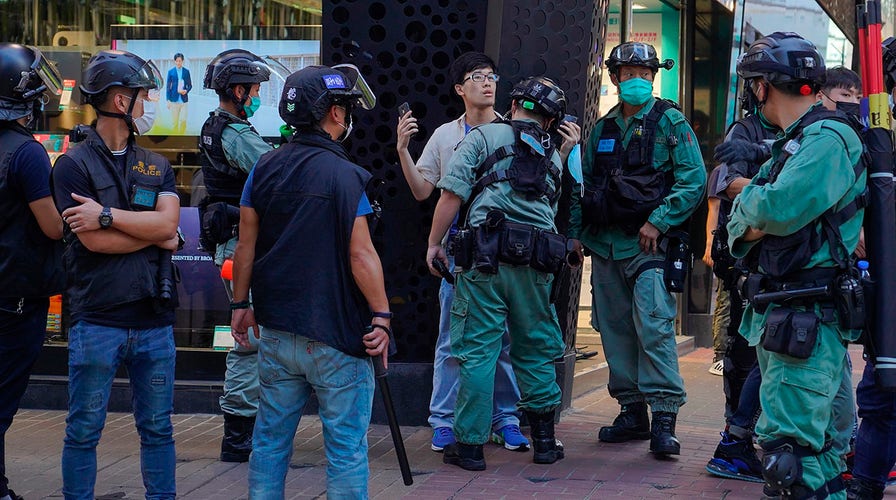Fox News Flash top headlines for June 29
Fox News Flash top headlines are here. Check out what's clicking on Foxnews.com.
Hong Kong police arrested dozens of protesters Sunday during a demonstration against a controversial national security bill, which China’s legislature has begun to review.
A crowd of several hundred opponents of the bill gathered for what was planned as a “silent protest” in the Kowloon district while armed riot police kept watch, Reuters reported.
POMPEO: US IMPOSES RESTRICTIONS ON CHINESE COMMUNIST PARTY LEADERS UNDERMINING HONG KONG AUTONOMY
Protesters ignored police warnings to disperse and began chanting slogans, police said on Facebook. Pepper spray was used to break up the crowd after some protesters charged at police lines in a street of Mong Kok, according to police.
Police said 53 protesters were arrested and charged with unlawful assembly.
The planned law would criminalize secession, subversion of state power, terrorist activities, and colluding with foreign forces to endanger national security. Critics say Hong Kong's legal statutes already account for such matters and that Beijing is determined to use the law to pursue political opponents.
HONG KONG PASTORS FACE ARREST, EXTRADITION TO CHINA WITH NEW SECURITY LAWS: WATCHDOG
The central government in Beijing also would set up a national security office in Hong Kong to collect and analyze intelligence and deal with criminal cases related to national security.

Police detain a person during a pro-democracy rally supporting human rights and to protest against Beijing's national security law in Hong Kong on Sunday. (AP Photo/Vincent Yu)
While few details have been released, the Associated Press reported it appears Beijing will have ultimate power over government appointments in the semi-autonomous nation.
The measures have been widely seen as the most significant erosion to date of Hong Kong’s British-style rule of law and high degree of autonomy that China promised Hong Kong would have under a “one country, two systems” principle.
CLICK HERE TO GET THE FOX NEWS APP
The National People’s Congress Standing Committee took up the bill at the start of a three-day session Sunday, China’s official Xinhua News Agency reported. China has said it is determined to enact the law, and its passage is expected by Tuesday.
The Associated Press contributed to this report.









































